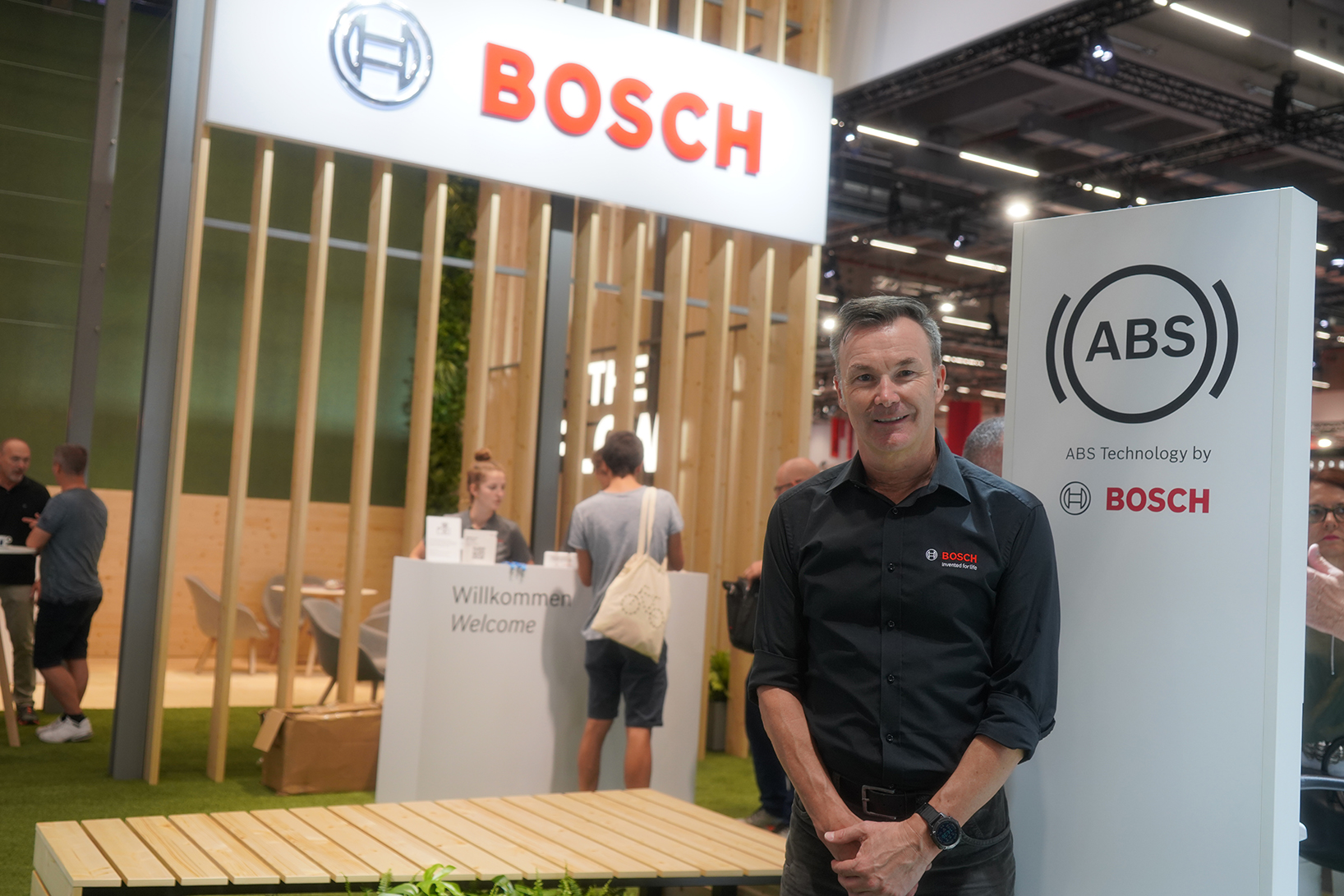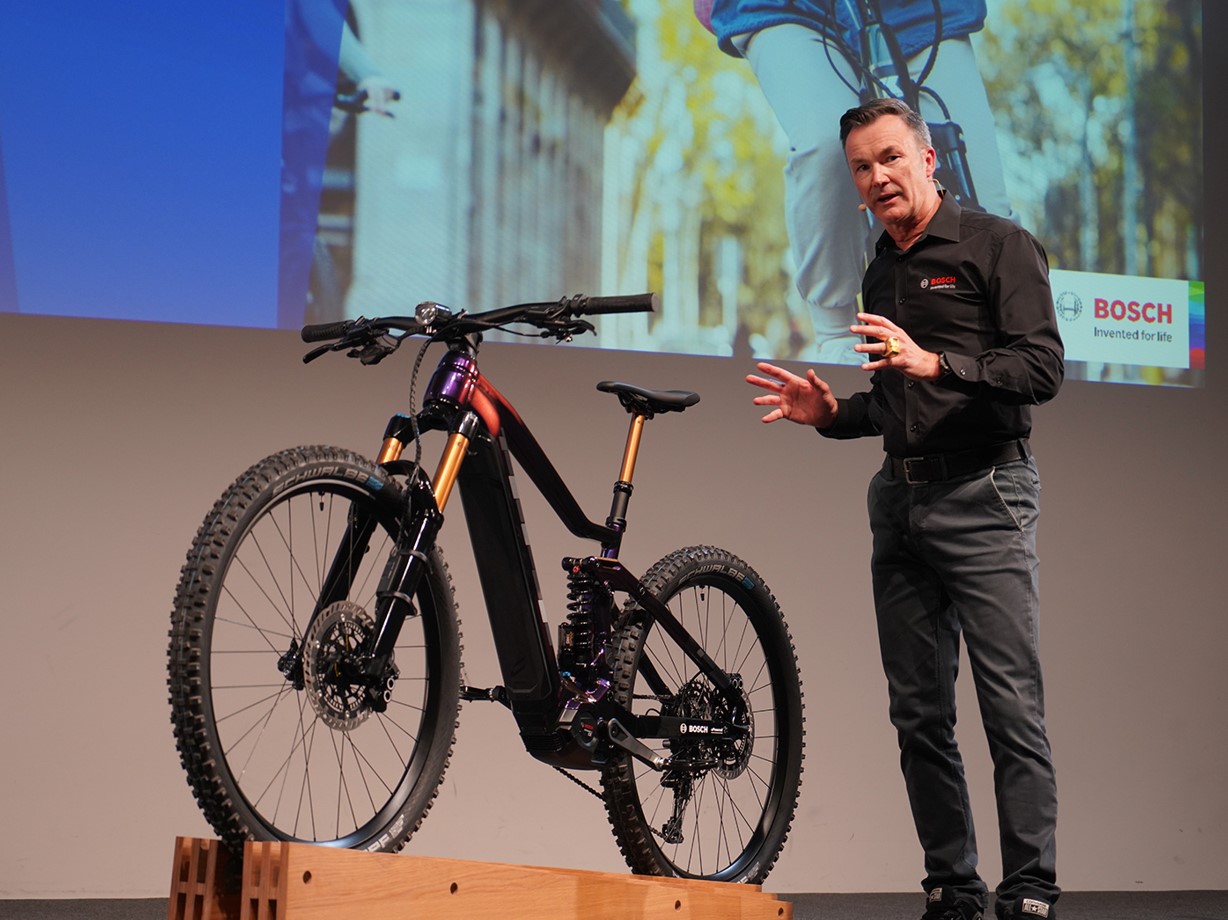The Challenges Facing the E-Bike Industry and Sustainability
2020 was a challenging year for people and nations across the globe - but the e-bike industry, in particular, took great strides forward. Mr. Fleischer reflected that “people would not travel” due to regional Covid prevention methods and peoples own mindfulness “so people would not buy cars, they would buy e-bikes,” mirroring the company’s own market model and research, where they indeed expected the growth of sales.
“Many in the media said this boom would fade away, but actually it’s a long-lasting trend,” Fleischer said. When pressed on the increasing cost and demand for e-bikes, Claus went further into the challenges Bosch has been faced with: “We have seen supply shortages with raw materials and electronic components,” a tilt to some of the problems with sourcing raw materials in a troubled world that’s been tackling Covid, navigating a Coup d’etat in Guinea - that has directly affected global bauxite imports - or being wedged between international trade wars.
Fleischer continued, “The demand for e-bikes is proving a challenge, we cannot supply enough to the whole industry,” due to the rise in demand and supply shortages, “and we see price increases everywhere, however; taking recession out of the picture, this ongoing trend shows we are growing with the market.”
The biggest challenge is actually nothing to do with products or technology - but actually comes down to comparing normal cyclists to an e-biker. “A normal cyclist can ride two to three times more often, and also two to three times longer, so the challenging topics are safety and regulation. When it comes to safety in particular, there are three important aspects: safe infrastructure, behavior and care for each other, and regulations,” Claus said.
Safe infrastructure ensures safety, and an actual perceived feeling of being safe when riding a bike, and with correct behavior attitudes and care for other road users, technology can help assist in innovative new ways. “Using technology, there’s a lot we can do to increase a cyclist’s safety,” Fleischer added.
One advancement is in ABS brake systems. He says: “We believe with an anti-lock braking system we can reduce the number of bicycle accidents due to braking by up to 29%.” A “digital shield” may in fact sound like something from a video game, but it’s actually an exciting new development already in use in the field of road safety.
“Using our smart system’s connectivity, our goal is to provide a digital safety shield around the cyclist,” essentially this helps stop bicycles from being invisible to some road users, “we see in the car industry that vehicles can “communicate” with nearly any other object (a system known as V2X (vehicle to everything)) including cyclists, cars, and infrastructure. Now we are developing “B2X” - bike to everything - we can now see the speeds and rough directions in which the bicycle will travel.”
These “2X” systems can communicate using digital information to alert other road users that a cyclist is nearby. “Future technology is putting a digital safety shield around you,” Fleischer marvelled.
European regulations limit pedelecs to a 25 km/h speed limit, and limit motors to 250w. These limitations enable e-bikes to the same rights and duties of regular bicycles “No helmet, license, or insurance is needed to ride an e-bike. You can use all current bike infrastructure in a city giving access to nature, parks, forests - wherever bicycles can go, the pedelecs can also go.”
In a nod to the Ukraine war’s effect on the sales of electric bicycles, Fleischer commented on the rise of global oil prices: “If energy prices keep going up, and gasoline prices for cars keeps going up, we can calculate that we should instead buy e-bikes for commuting, because the energy consumption and running costs are so little in comparison to that of a car. Gas is already up 30 - 50% in price.”
As EU countries start collecting carbon tax, Claus shared some of Bosch’s own carbon reduction achievements: “Bosch was the first industrial company worldwide to become CO2 neutral. Since 2020 across the whole company we have measures to ensure this.
“One is producing our own green power - we have power plants for solar and water power increasing our green power.
“Second is decreasing our energy consumption - increasing better heating and insulation at our facilities and a reduction of process energy.
“Also, we are an individual business within the Bosch group, we care about our own employees’ CO2 footprint. And it’s not enough just saying “riding e-bikes will lower emissions” we have to take care of the whole lifespan of the product.
“From raw materials, to production, to usage, to end-of-life recycling, we use step-by-step analytics from different associations, organizations, technical advisors, and suppliers, to ensure that more green power is used. To melt aluminum or magnesium requires a lot of energy, we work with suppliers who show us their measures and track records for reducing energy consumption - going into the future. This even includes reducing plastic used in logistics.”










